
Bari: The Jewel of the Adriatic Coast
Bari, a vibrant port city on Italy's Adriatic coast, is a blend of rich history, stunning architecture, and lively street life. As the capital of the Apulia region, Bari is known for its picturesque old town, Bari Vecchia, where narrow alleyways and charming piazzas invite exploration. This ancient heart of the city is home to the Basilica of Saint Nicholas, a key pilgrimage site for both Roman Catholics and Eastern Orthodox Christians. Nearby, the imposing Norman-Swabian Castle stands as a testament to the city's storied past. Beyond the historic center, Bari offers a modern side with bustling markets, elegant shopping streets, and a vibrant nightlife. The Murat district, with its 19th-century grid layout, is perfect for a leisurely stroll, offering a mix of boutiques, cafes, and gelaterias. The Lungomare, a scenic promenade along the seafront, provides stunning views of the Adriatic Sea and is ideal for a relaxing evening walk. Bari's culinary scene is another highlight, with local specialties like orecchiette pasta, fresh seafood, and the famous focaccia barese. The city's markets, such as Mercato del Pesce, are a feast for the senses, offering a wide array of fresh produce and local delicacies. Whether you're a history buff, a foodie, or simply looking to soak up the sun, Bari has something to offer every traveler.
Local tips in Bari
- Visit Bari Vecchia early in the morning to avoid crowds and enjoy the serene atmosphere.
- Try the local street food, especially the focaccia barese, from a bakery in the old town.
- Take a stroll along the Lungomare in the evening for breathtaking sunset views over the Adriatic Sea.
- If you're visiting in May, don't miss the Festa di San Nicola, a major local festival with parades and fireworks.
- Use public transport or rent a bike to explore the city, as parking can be challenging in the narrow streets.
- Learn a few basic Italian phrases; while many locals speak some English, they appreciate the effort.
Neighbourhoods in Bari
Bari: The Jewel of the Adriatic Coast
Bari, a vibrant port city on Italy's Adriatic coast, is a blend of rich history, stunning architecture, and lively street life. As the capital of the Apulia region, Bari is known for its picturesque old town, Bari Vecchia, where narrow alleyways and charming piazzas invite exploration. This ancient heart of the city is home to the Basilica of Saint Nicholas, a key pilgrimage site for both Roman Catholics and Eastern Orthodox Christians. Nearby, the imposing Norman-Swabian Castle stands as a testament to the city's storied past. Beyond the historic center, Bari offers a modern side with bustling markets, elegant shopping streets, and a vibrant nightlife. The Murat district, with its 19th-century grid layout, is perfect for a leisurely stroll, offering a mix of boutiques, cafes, and gelaterias. The Lungomare, a scenic promenade along the seafront, provides stunning views of the Adriatic Sea and is ideal for a relaxing evening walk. Bari's culinary scene is another highlight, with local specialties like orecchiette pasta, fresh seafood, and the famous focaccia barese. The city's markets, such as Mercato del Pesce, are a feast for the senses, offering a wide array of fresh produce and local delicacies. Whether you're a history buff, a foodie, or simply looking to soak up the sun, Bari has something to offer every traveler.
When is the best time to go to Bari?
Iconic landmarks you can’t miss
Basilica San Nicola
Discover the spiritual essence of Bari at the Basilica San Nicola, a stunning Romanesque church steeped in history and cultural significance.
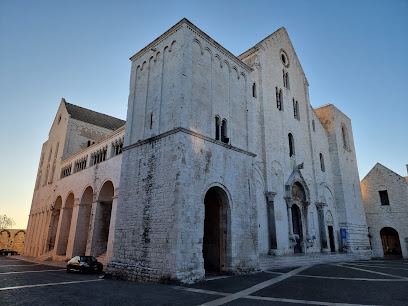
Teatro Petruzzelli
Explore the stunning Teatro Petruzzelli in Bari, a majestic opera house that showcases Italy's rich cultural heritage through captivating performances.
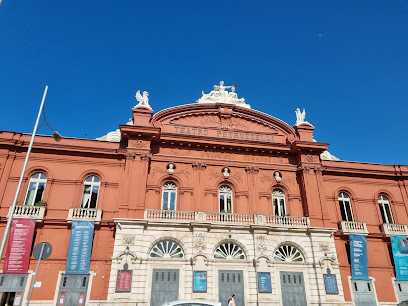
Basilica Cattedrale Metropolitana Primaziale San Sabino
Discover the architectural splendor and spiritual significance of Basilica Cattedrale Metropolitana Primaziale San Sabino in Bari, Italy, a true cultural gem.
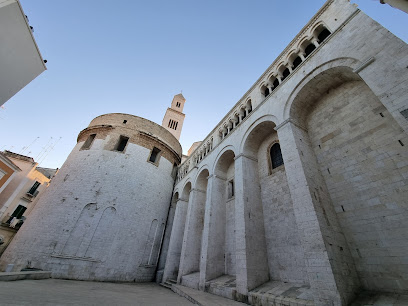
Mercure Villa Romanazzi Carducci Bari
Discover the elegance and comfort of Mercure Villa Romanazzi Carducci in Bari, perfect for immersing in Italy's rich culture and stunning coastline.
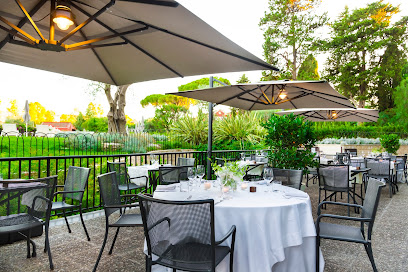
Direzione regionale Musei
Discover the rich cultural heritage of Bari at the Direzione Regionale Musei, a historical landmark that showcases the artistic evolution of Puglia.
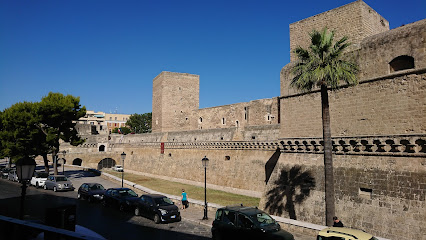
Antica gelateria Gentile
Experience the authentic taste of Italy at Antica Gelateria Gentile, where artisanal gelato and delightful desserts await in the heart of Bari.
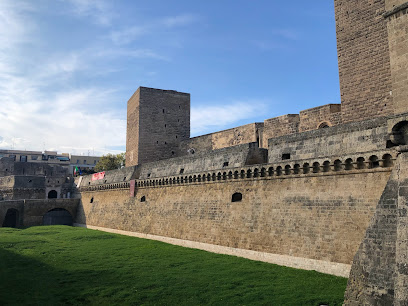
Castello Svevo di Bari
Immerse yourself in the medieval charm of Castello Svevo di Bari, a historical fortress showcasing the rich heritage and culture of the region.
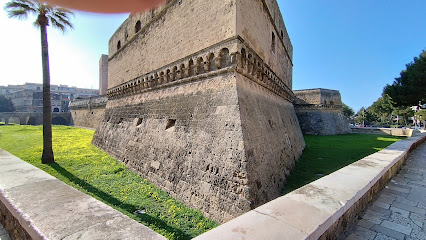
Palazzo Mincuzzi
Explore Palazzo Mincuzzi in Bari, Italy - an architectural masterpiece reflecting the elegance of early 20th-century design amidst a vibrant urban backdrop.
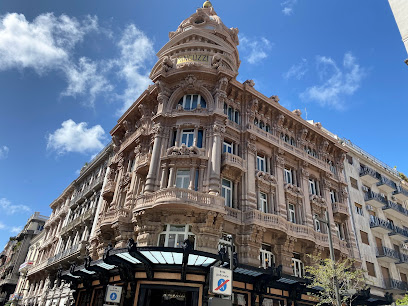
Il Fortino di Sant'Antonio
Explore the enchanting Il Fortino di Sant'Antonio, a scenic spot in Bari renowned for its stunning views and rich historical significance.
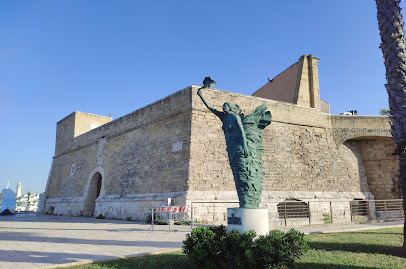
Gestipark Battisti srl
Discover the charm of Bari with convenient parking at Gestipark, your gateway to exploring Italy's vibrant coastal city.
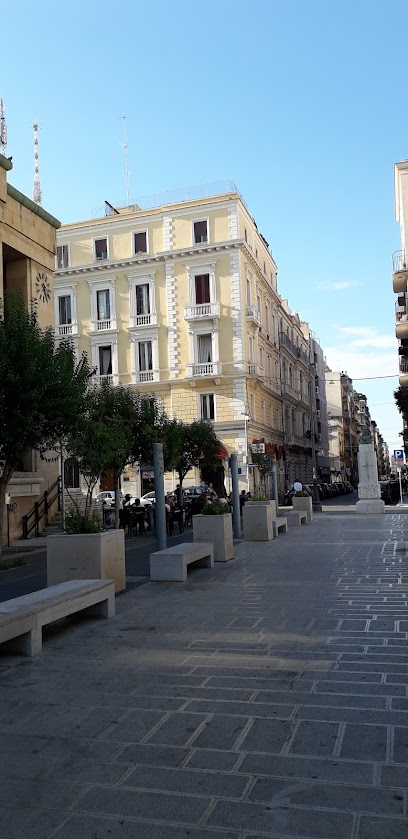
Chiesa Ortodossa Russa di San Nicola
Discover the breathtaking Chiesa Ortodossa Russa di San Nicola, a cultural gem in Bari, where stunning architecture meets serene spirituality.
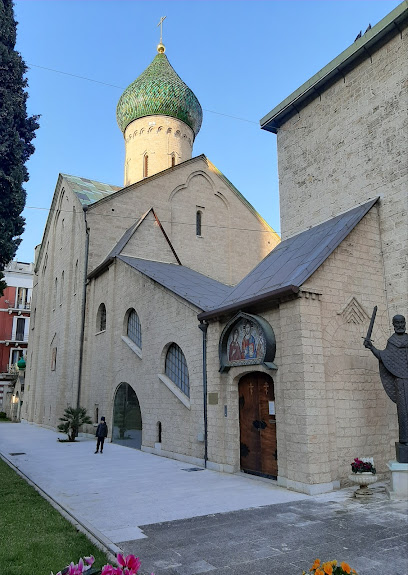
Bar Templari
Experience the authentic flavors of Bari at Bar Templari, the cozy bistro nestled in Piazza Federico II di Svevia, perfect for every meal.
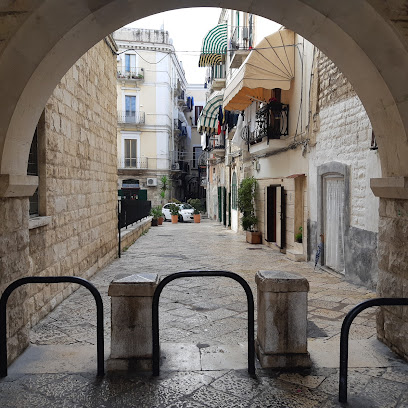
Taverna del Maltese
Immerse yourself in the lively atmosphere of Taverna del Maltese, where delicious food meets a fantastic selection of beers in the heart of Bari.
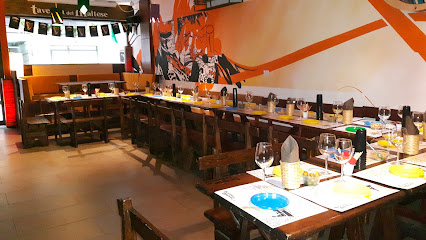
Largo Albicocca - Piazza degli Innamorati
Explore Largo Albicocca, the romantic square in Bari that enchants visitors with its picturesque beauty and vibrant local culture.
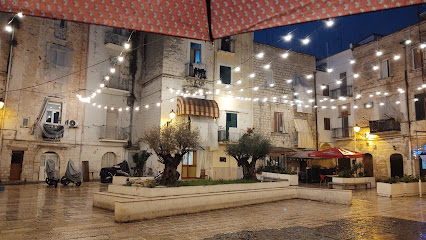
Speakeasy Bari
Discover the vibrant nightlife at Speakeasy Bari, where exquisite cocktails and delicious tapas create unforgettable moments in the heart of Bari.
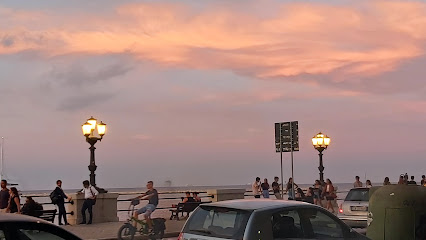
Unmissable attractions to see
Grotte di Castellana
Discover the stunning Grotte di Castellana, a natural wonder filled with breathtaking caves, unique rock formations, and rich geological history.
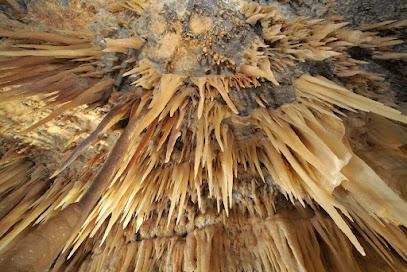
Basilica of Saint Nicholas
Explore the Basilica of Saint Nicholas, a stunning Romanesque church in Bari, Italy, showcasing rich history and breathtaking architecture.
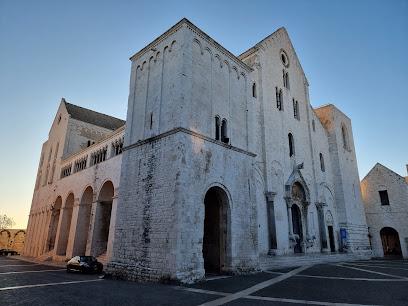
Lama Monachile
Discover the stunning beauty of Lama Monachile, a breathtaking beach in Polignano a Mare, framed by dramatic cliffs and crystal-clear waters.
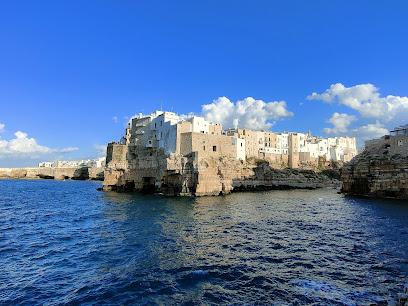
Trullo Sovrano
Explore Trullo Sovrano, a UNESCO World Heritage site in Alberobello, showcasing unique architecture and rich Apulian history.
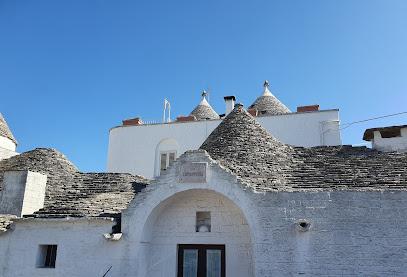
Basilica Cattedrale Maria Santissima Assunta
Explore the architectural beauty and historical significance of the Basilica Cattedrale Maria Santissima Assunta in Trani, a must-visit for every traveler.
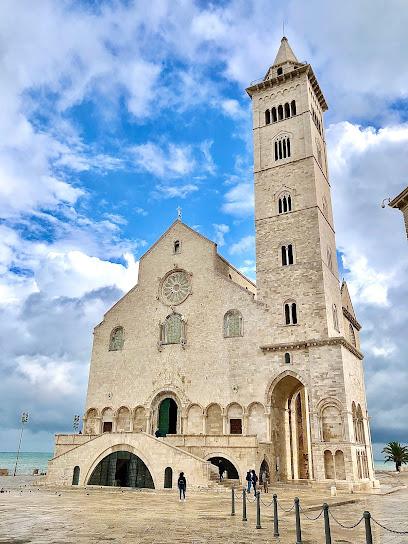
Parco 2 Giugno
Explore Parco 2 Giugno in Bari, a tranquil urban park perfect for relaxation, nature walks, and family-friendly activities amidst stunning landscapes.
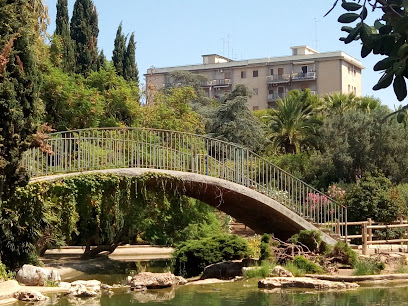
Teatro Petruzzelli
Experience the grandeur of Teatro Petruzzelli in Bari, Italy, a stunning opera house offering captivating performances and rich cultural history.
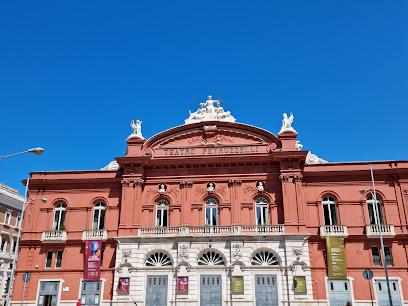
Cala Porta Vecchia
Discover the beauty of Cala Porta Vecchia in Monopoli, a stunning public beach perfect for relaxation, swimming, and enjoying local cuisine.
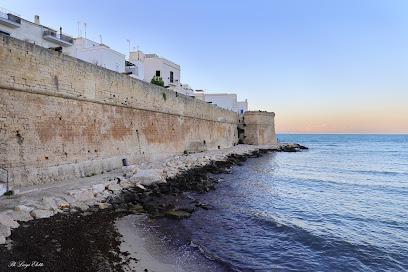
Basilica Cattedrale Metropolitana Primaziale San Sabino
Discover the architectural beauty and spiritual significance of the Basilica Cattedrale Metropolitana Primaziale San Sabino in the heart of Bari, Italy.
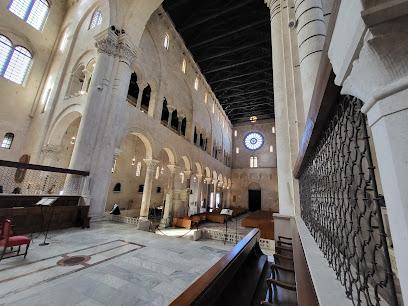
Pane e Pomodoro
Discover the beauty and vibrant atmosphere of Pane e Pomodoro, Bari's premier public beach, where relaxation meets Mediterranean charm.
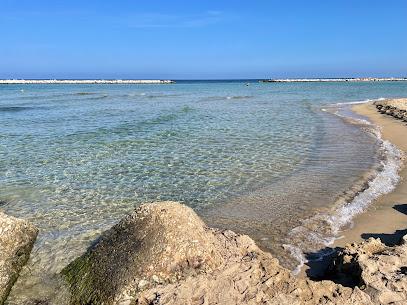
Conversano Castle
Explore Conversano Castle, a stunning medieval fortress in Italy, offering breathtaking views, rich history, and captivating architecture.
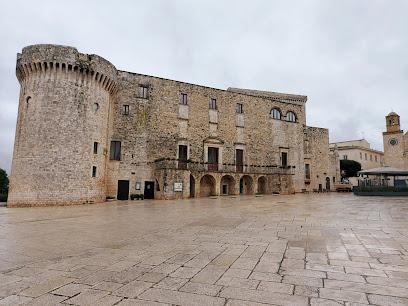
Castello Svevo di Trani
Explore the historic Castello Svevo di Trani, an architectural marvel overlooking the Adriatic, rich in history and breathtaking views.
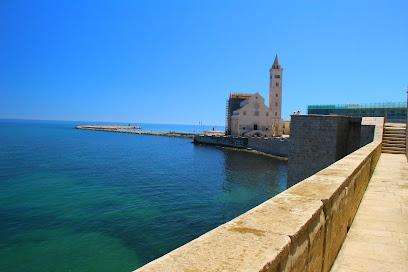
Cattedrale Maria Santissima della Madia
Explore the Cattedrale Maria Santissima della Madia, a stunning example of Baroque architecture and a spiritual heart of Monopoli, Italy.
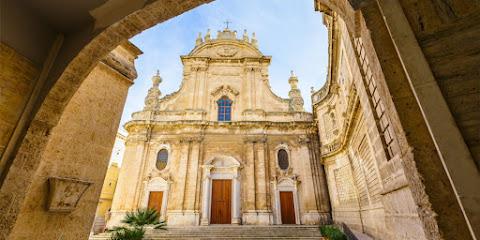
Lido Cala Paura
Discover the stunning beauty of Lido Cala Paura, a coastal gem in Polignano A Mare, offering sun, sand, and delicious local cuisine.
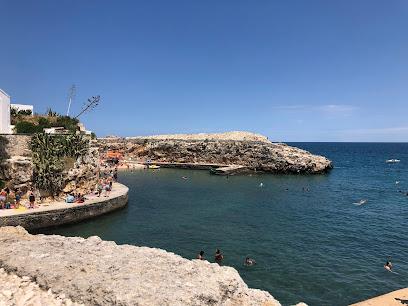
Castello Svevo di Bari
Discover the enchanting Castello Svevo di Bari, a stunning medieval fortress that showcases the rich history and culture of Bari's past.
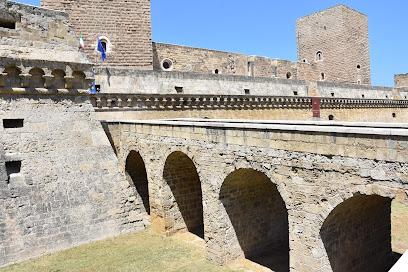
Essential places to dine
Mastro Ciccio
Experience authentic Italian flavors at Mastro Ciccio in Bari—where every sandwich tells a story.
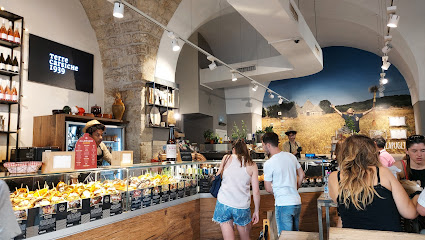
La Cantina dello Zio
Experience authentic Italian seafood cuisine at La Cantina dello Zio in Bari - where every dish tells a story.
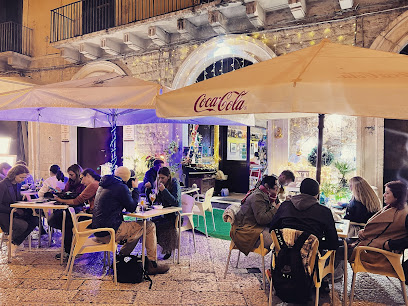
La Tana del Polpo
Experience authentic Italian cuisine at La Tana del Polpo in Bari—where fresh seafood meets tradition in a cozy atmosphere.
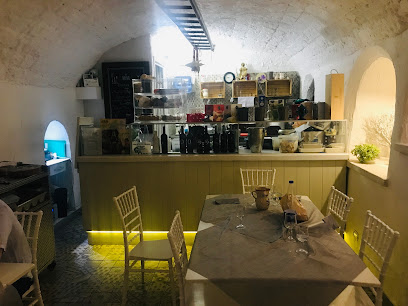
Antò - Cucina Tipica Pugliese [RISTORANTE&TRATTORIA]
Discover Antò - Cucina Tipica Pugliese in Bari: A Culinary Gem Offering Authentic Southern Italian Flavors and Traditional Dishes.
![Antò - Cucina Tipica Pugliese [RISTORANTE&TRATTORIA]](https://evendo-location-media.s3.amazonaws.com/RestaurantImages/55467582-299f-4200-9dd9-cbcd03a35dbb)
Ristorante Le Terrazze del Santa Lucia
Experience exquisite Italian cuisine with breathtaking views at Ristorante Le Terrazze del Santa Lucia in Bari.
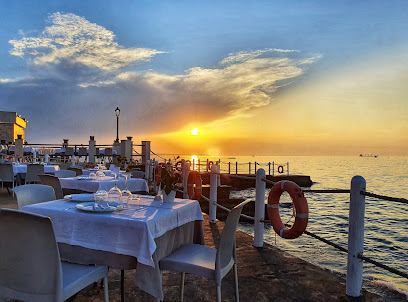
La Uascezze
Experience the best of Italian cuisine at La Uascezze in Bari – where tradition meets innovation in every bite.
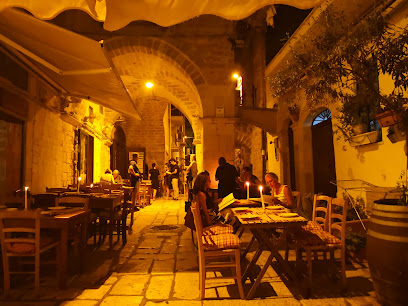
R45
Experience authentic Southern Italian flavors at R45 in Bari – from fresh seafood to classic pizzas, indulge in a true culinary delight.
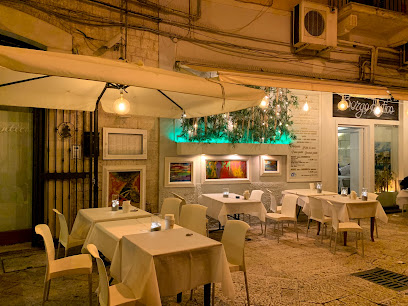
Pescobar
Discover the taste of the Mediterranean at Pescobar in Bari - where fresh seafood meets vibrant dining.
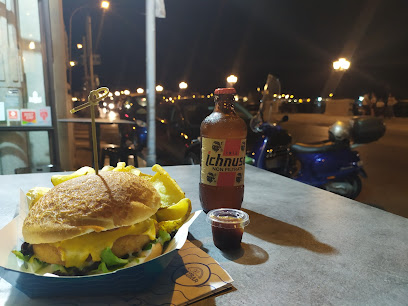
L'Osteria del Borgo Antico
Experience the essence of Italy at L'Osteria del Borgo Antico in Bari – where every meal tells a story!
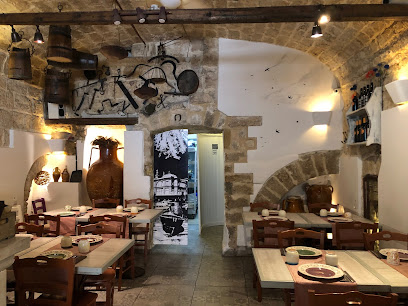
Ristorante La Pesciera
Experience authentic Italian seafood at Ristorante La Pesciera in Bari - where fresh flavors meet traditional recipes.
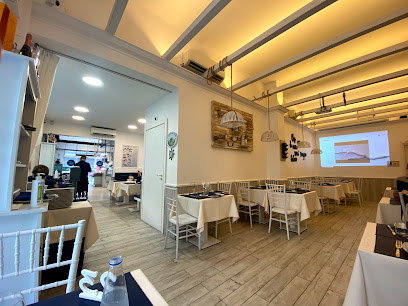
Ai 2 Ghiottoni
Experience exquisite seafood and authentic Italian cuisine at Ai 2 Ghiottoni in Bari for an unforgettable culinary journey.
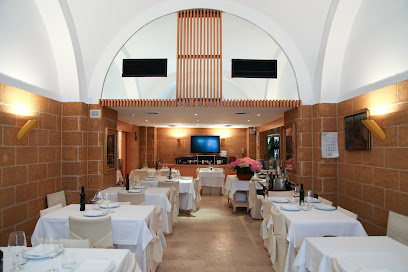
La Cecchina - Ristorante di cucina italiana, gourmet, pugliese, miglior pesce e carne locale. Ristoranti a Bari Vecchia
Experience authentic Italian flavors at La Cecchina - where exquisite seafood meets Southern Italian culinary artistry.
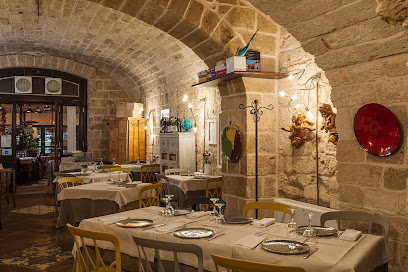
Garden
Discover authentic Italian cuisine at The Garden in Bari - where every meal tells a story of tradition and flavor.
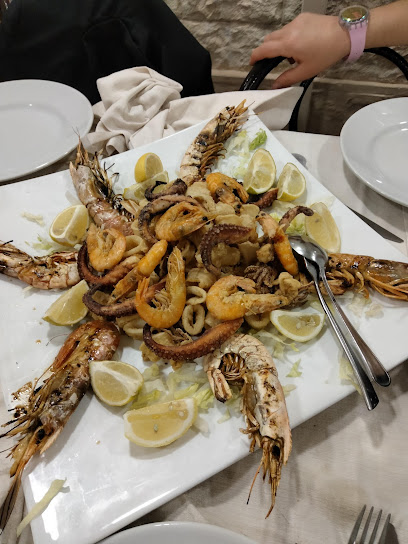
La Muraya Ristorante
Savor exquisite seafood and authentic Italian cuisine at La Muraya Ristorante in Bari—where every meal is a celebration of flavor.
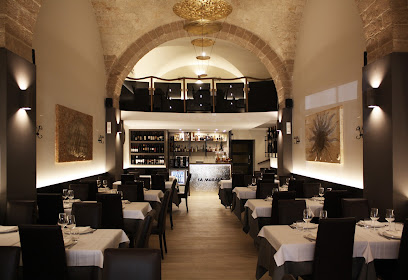
La Biglietteria
Experience authentic Italian cuisine at La Biglietteria in Bari – where every dish tells a story of tradition and flavor.
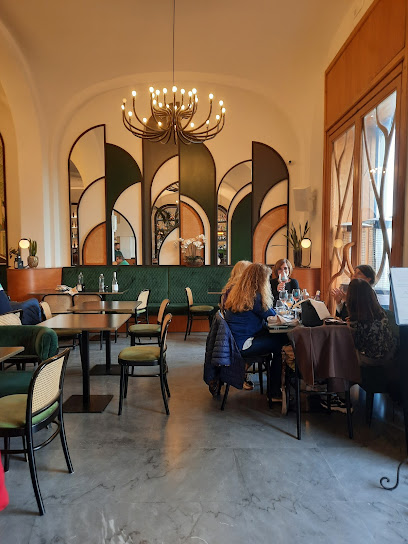
Markets, malls and hidden boutiques
BARIMAX Shopping Village
Explore BARIMAX Shopping Village: A Premier Shopping Destination in Bari with Diverse Shops, Dining, and Entertainment Options for Every Visitor.
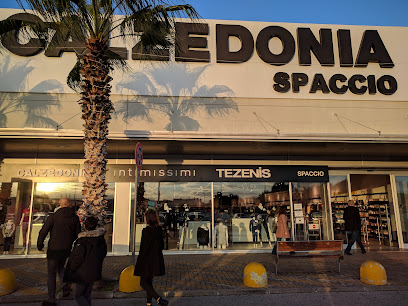
Louis Vuitton Bari
Discover timeless elegance and exquisite craftsmanship at Louis Vuitton Bari, the premier destination for luxury leather goods and fashion accessories.
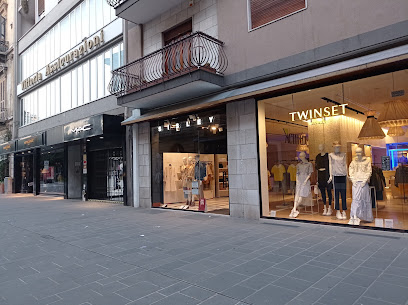
Vittò Group Luxury Outlet
Shop the latest fashion trends at Vittò Group Luxury Outlet in Bari, where stylish clothing and unbeatable discounts await every shopper.
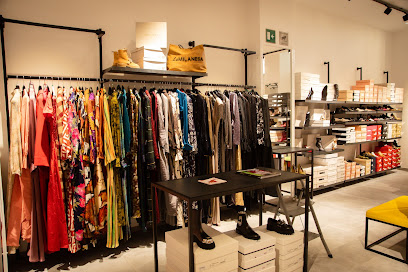
Macedonia Bari (A)
Explore the vibrant world of Macedonia Bari, a unique gift shop in Bari, Italy, offering vintage clothing and eclectic treasures for every traveler.
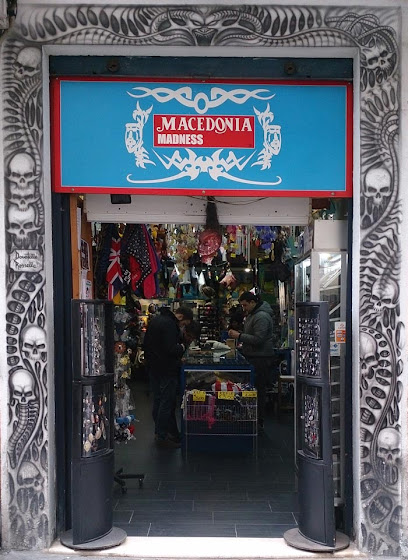
IQOS Boutique Bari
Discover the IQOS Boutique in Bari, an innovative electronics store offering advanced tobacco alternatives in a sleek shopping environment.
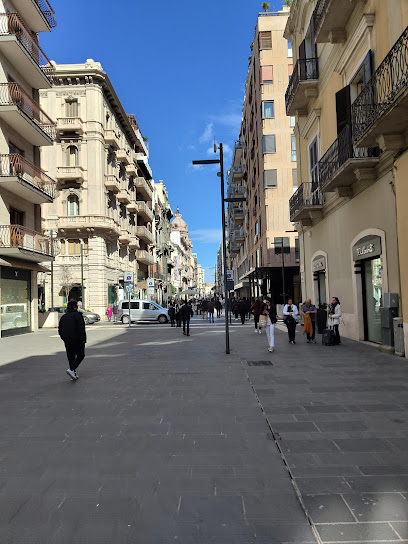
Gucci
Discover the luxurious world of Gucci in Bari, offering exquisite fashion, leather goods, and timeless accessories for discerning shoppers.
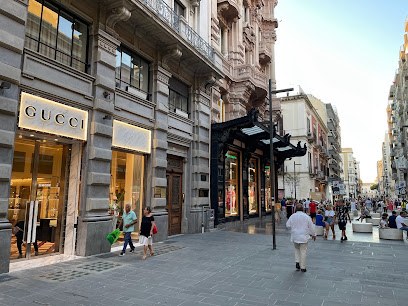
Scenario - Vintage Store Bari
Explore the best vintage clothing store in Bari, where timeless fashion meets unique style and treasure hunting becomes a delightful adventure.
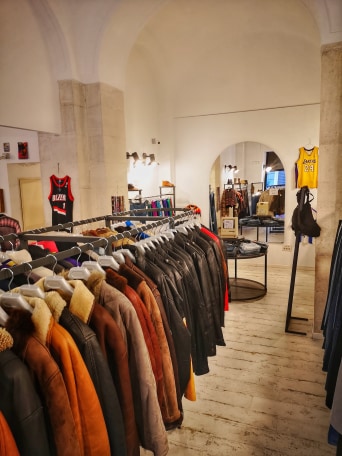
Second Chance Vintage
Discover unique vintage fashion pieces at Second Chance Vintage in Bari, where every garment tells a story and style transcends time.
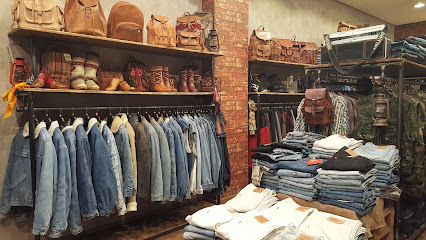
Outlet Sciuku
Discover unbeatable deals on top brands at Outlet Sciuku in Bari – your ultimate destination for outlet shopping in Italy.
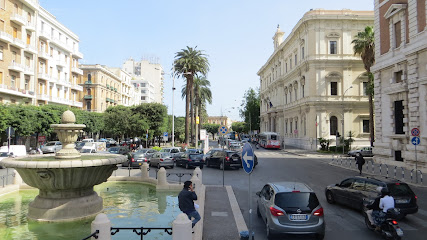
Magicaterra - Ceramica, Terracotta, Cultura Pugliese - Bari - San Nicola
Explore Magicaterra in Bari for exquisite Pugliese ceramics, terracotta crafts, and unique gifts that capture the heart of Italy's culture.
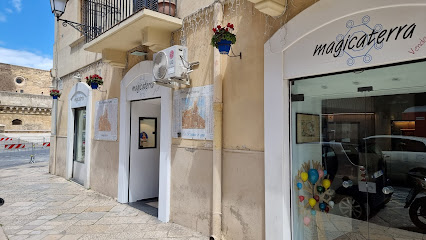
The Bridge Boutique Bari
Experience unparalleled quality and style at The Bridge Boutique Bari, your ultimate destination for exquisite leather goods and handbags.
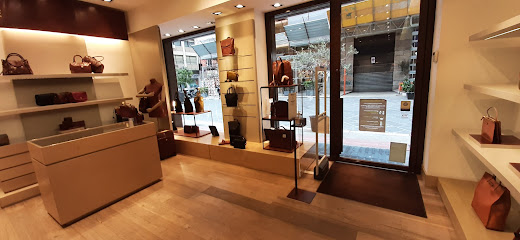
Prada Bari
Experience the elegance of Italian fashion at Prada Bari, where luxury meets style in the heart of Bari.
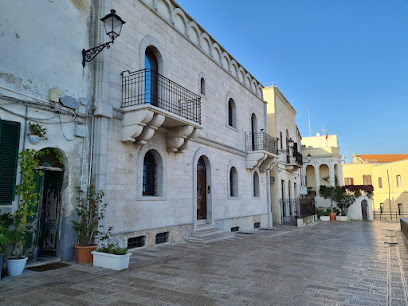
AILIMè di Forastiere Emilia
Explore the finest women's clothing and accessories at AILIMè di Forastiere Emilia, a chic boutique in the heart of Bari, Italy.
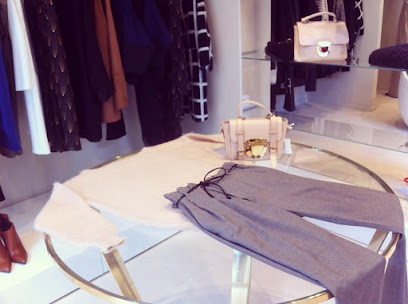
Charity Chic Italia | Negozio di utilità sociale | Abbigliamento vintage solidale | Bari
Explore vintage fashion and support social causes at Charity Chic Italia in Bari, where every purchase makes a difference.
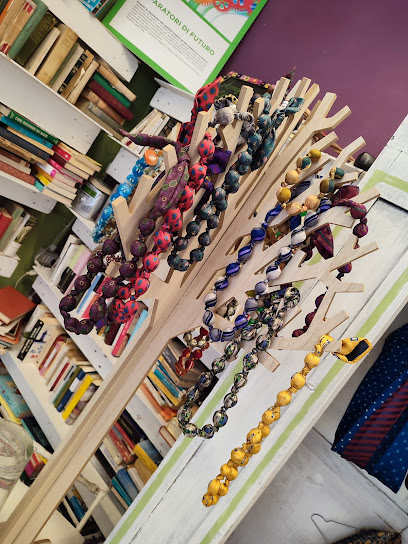
Mimma Ninni
Discover the charm of Bari's fashion scene at Mimma Ninni, where contemporary styles meet Italian elegance in a vibrant shopping experience.
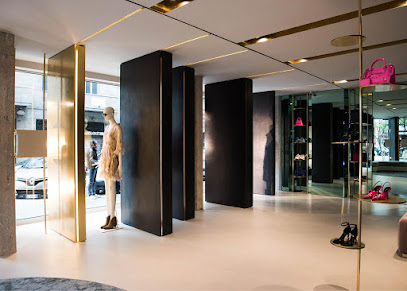
Essential bars & hidden hideouts
Moderno
Discover the vibrant charm of Moderno Bar in Bari, where local flavors meet a lively atmosphere, perfect for unwinding after a day of exploration.
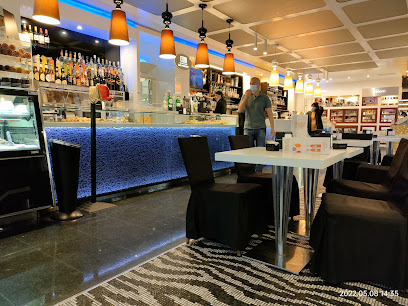
Terra di Mezzo | Beer Food & Fun
Experience the vibrant atmosphere and delicious offerings at Terra di Mezzo, Bari's top pub and pizza restaurant for food and fun.
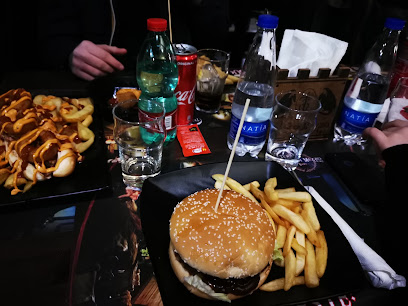
The ciclatera under the sea
Experience a magical underwater ambiance and delightful drinks at The Ciclatera Under the Sea in Bari, Italy.
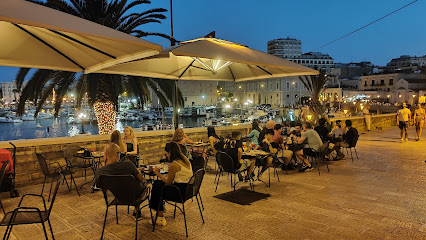
The Stuart, Scottish Pub
Experience the spirit of Scotland at The Stuart, a lively pub in Bari offering authentic cuisine and an extensive beer selection for an unforgettable night out.
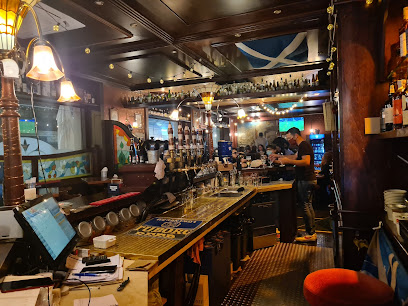
MOOD Enjoy Different
Discover the vibrant cocktail scene at MOOD Enjoy Different, Bari's premier bar for unique drinks and lively nightlife.
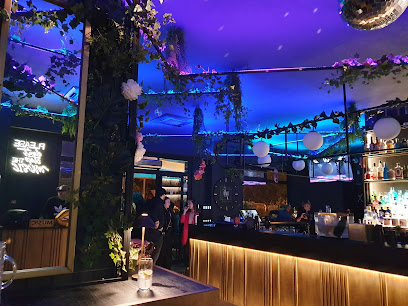
MercantileNove
Experience the vibrant atmosphere and exquisite flavors at MercantileNove, Bari's premier cocktail bar and culinary hotspot.
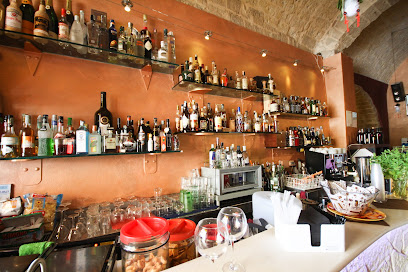
Taverna del Maltese
Discover the authentic taste of Italy at Taverna del Maltese, a vibrant pub and restaurant in Bari with a charming beer garden.
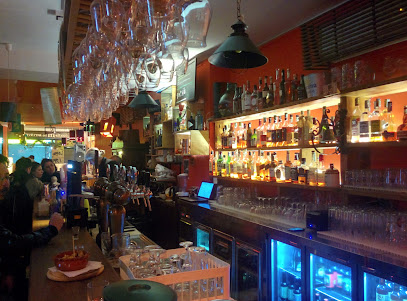
La Ciclatera
Discover the vibrant nightlife of Bari at La Ciclatera, a pub known for its creative cocktails and welcoming atmosphere.
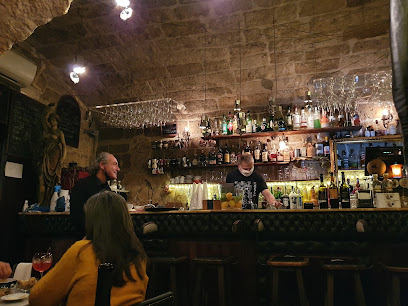
Le Chat Noir
Discover the lively charm of Le Chat Noir, a premier cocktail bar in Bari known for its exquisite drinks and vibrant nightlife.
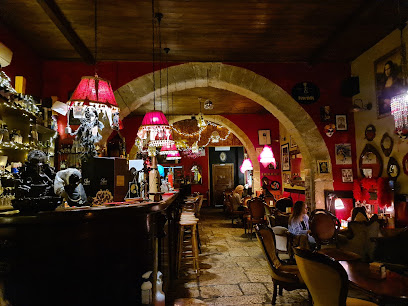
Speakeasy Bari
Experience the best of Bari's nightlife at Speakeasy Bari, where unique cocktails and delectable tapas create unforgettable moments.
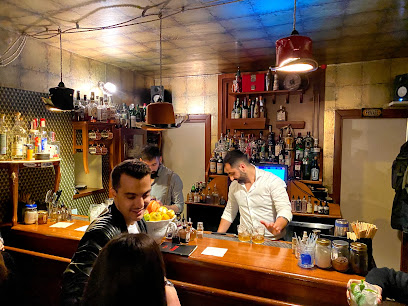
La Bitta Porto Sicuro
Experience the vibrant atmosphere and authentic flavors of Bari at La Bitta Porto Sicuro, your go-to pub and bistro for local delights.
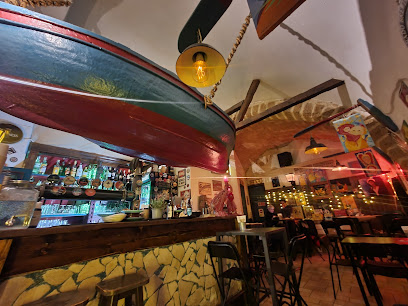
In Bocca al Luppolo
Experience the lively atmosphere and diverse beer selection at In Bocca al Luppolo, a must-visit pub in Bari's vibrant nightlife scene.
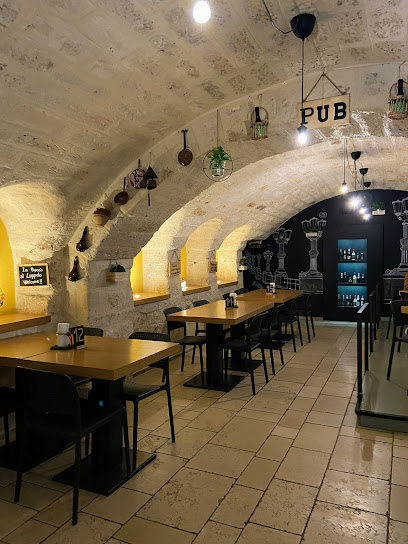
Cavanbah Pub
Discover the vibrant nightlife at Cavanbah Pub in Bari, where delightful snacks and a great drink selection await in a lively atmosphere.
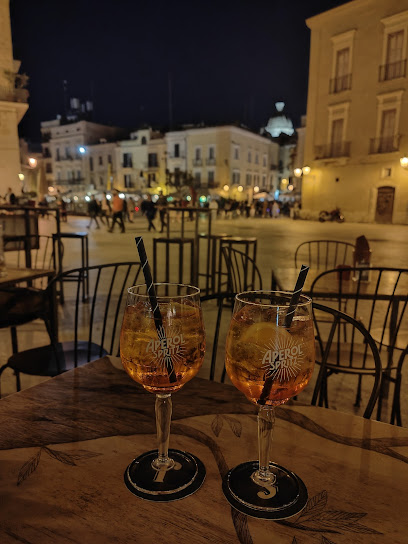
Luau Tiki Bar
Discover the vibrant Luau Tiki Bar in Bari – a tropical paradise with exotic cocktails, lively music, and unforgettable nightlife experiences.
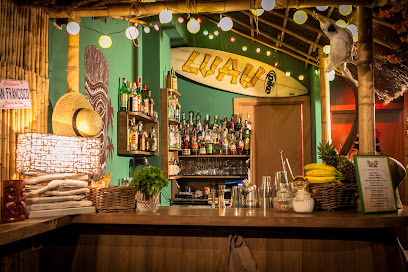
Travel experiences inspired by this city
Explore more travel diariesLocal Phrases
-
- HelloCiao
[chow] - GoodbyeArrivederci
[ar-ri-ve-der-chi] - YesSì
[see] - NoNo
[no] - Please/You're welcomePer favore/Prego
[per fa-vo-re/pre-go] - Thank youGrazie
[gra-tzi-e] - Excuse me/SorryScusa/Scusami
[scoo-za/scoo-sa-mee] - How are you?Come stai?
[ko-me stai] - Fine. And you?Bene. E tu?
[be-ne/e tu] - Do you speak English?Parli inglese?
[par-li in-gle-se] - I don't understandNon capisco
[non ca-pi-sco]
- HelloCiao
-
- I'd like to see the menu, pleaseVorrei vedere il menu, per favore
[vo-rre-i ve-de-re eel me-nu/per fa-vo-re] - I don't eat meatNon mangio carne
[non man-jo car-ne] - Cheers!Salute!
[sa-lu-te] - I would like to pay, pleaseVorrei pagare, per favore
[vo-rre-i pa-ga-re/per fa-vo-re]
- I'd like to see the menu, pleaseVorrei vedere il menu, per favore
-
- Help!Aiuto!
[ai-u-to] - Go away!Vai via!
[vai via] - Call the Police!Chiama la polizia!
[kya-ma la po-li-tzi-a] - Call a doctor!Chiama un dottore!
[kya-ma oon dot-to-re] - I'm lostMi sono perso
[mi so-no per-so] - I'm illSono malato
[so-no ma-la-to]
- Help!Aiuto!
-
- I'd like to buy...Vorrei comprare...
[vo-rre-i com-pra-re] - I'm just lookingSto solo guardando
[sto so-lo guar-dan-do] - How much is it?Quanto costa?
[quan-to cos-ta] - That's too expensiveÈ troppo caro
[e tro-p-po ca-ro] - Can you lower the price?Puoi abbassare il prezzo?
[pwoi ab-bas-sa-re eel pret-so]
- I'd like to buy...Vorrei comprare...
-
- What time is it?Che ora è?
[ke o-ra e] - It's one o'clockÈ l'una
[e lu-na] - Half past (10)Sono le dieci e mezza
[so-no le die-ci e met-zza] - MorningMattina
[mat-ti-na] - AfternoonPomeriggio
[po-me-rig-gio] - EveningSera
[se-ra] - YesterdayIeri
[ie-ri] - TodayOggi
[od-ji] - TomorrowDomani
[do-ma-ni] - 1Uno
[u-no] - 2Due
[du-e] - 3Tre
[tre] - 4Quattro
[quat-tro] - 5Cinque
[chin-kwe] - 6Sei
[sei] - 7Sette
[set-te] - 8Otto
[ot-to] - 9Nove
[no-ve] - 10Dieci
[die-ci]
- What time is it?Che ora è?
-
- Where's a/the...?Dov'è un/il...?
[do-ve oon/eel] - What's the address?Qual è l'indirizzo?
[kwal e lin-di-rit-zo] - Can you show me (on the map)?Puoi mostrarmi (sulla mappa)?
[pwoi mo-strar-mi/sul-la map-pa] - When's the next (bus)?Quando passa il prossimo (autobus)?
[quan-do pas-sa eel pros-si-mo/au-to-boos] - A ticket (to ....)Un biglietto (per ....)
[oon big-let-to/per]
- Where's a/the...?Dov'è un/il...?
History of Bari
-
Bari's history dates back to ancient times, with evidence of settlements in the area as far back as the Bronze Age. It was originally a small village inhabited by the Peucetii, an Illyrian tribe. The strategic location on the Adriatic Sea made it an important hub for trade and cultural exchange.
-
During the Roman period, Bari became known as Barium. It flourished as a significant port and commercial center, benefiting from its position on the Via Traiana, a major Roman road. The city was equipped with essential infrastructure, including a forum, baths, and an amphitheater.
-
In the early medieval period, Bari experienced a series of power shifts. It became part of the Byzantine Empire in the 6th century and served as the capital of the Byzantine province of Langobardia. The Lombards, a Germanic people, later took control of the area in the 7th century, leading to a period of prosperity and cultural development.
-
In the 9th century, Bari was captured by Arab forces, becoming an Islamic Emirate for a brief period. This era brought new architectural styles and cultural influences to the city. In 1071, the Normans, led by Robert Guiscard, seized Bari, marking the end of Arab rule and the beginning of Norman dominance, which brought further architectural and administrative advancements.
-
One of the most significant events in Bari's history is the arrival of the relics of St. Nicholas in 1087. The relics were brought from Myra (in present-day Turkey) by a group of sailors. To house these relics, the Basilica di San Nicola was constructed, becoming a major pilgrimage site and a symbol of Bari's religious importance.
-
During the 12th and 13th centuries, Bari came under the rule of the Hohenstaufen dynasty, particularly Emperor Frederick II, who fortified the city and built the Castello Svevo. Later, the Angevin dynasty took control, further enhancing Bari's status as a key maritime and commercial hub in the Mediterranean.
-
Bari experienced cultural and economic growth during the Renaissance and Baroque periods. The city saw the construction of elegant palaces and churches, many of which still stand today. The arts and education flourished, with the establishment of institutions such as the University of Bari in 1925.
-
In the 19th and 20th centuries, Bari underwent significant modernization. The city expanded beyond its medieval walls, developing new neighborhoods and infrastructure. During World War II, Bari played a crucial role as an Allied base in the Mediterranean Theater. The city was bombed in 1943, but it quickly recovered and continued to grow in the post-war period.
-
Today, Bari is a vibrant and dynamic city that seamlessly blends its rich history with modern development. It is the capital of the Apulia region and an important economic and cultural center in southern Italy. The historic old town, with its narrow winding streets and historic buildings, contrasts with the bustling new town, showcasing Bari's unique charm and enduring legacy.
Bari Essentials
-
Bari is accessible via Bari Karol Wojtyła Airport (BRI), located about 8 kilometers northwest of the city center. The airport serves both domestic and international flights. From the airport, you can take a taxi, shuttle bus, or train to reach the city center. Alternatively, Bari is well-connected by train to other major Italian cities such as Rome, Milan, and Naples.
-
Bari has an efficient public transportation system, including buses and trains. The local bus network, operated by AMTAB, covers most parts of the city. For intercity travel, Trenitalia offers extensive rail services. Taxis are readily available, and car rentals can be a convenient option for exploring the surrounding areas. Biking is also popular, with several bike rental shops around the city.
-
Italy uses the Euro (EUR) as its currency. Credit and debit cards are widely accepted in hotels, restaurants, and shops. However, it's advisable to carry some cash for small purchases or in case you visit places that are cash-only. ATMs are plentiful throughout Bari, so withdrawing cash shouldn't be an issue.
-
Bari is generally a safe city, but like any urban area, it is wise to take precautions. Be cautious of pickpockets, especially in crowded areas like the Old Town (Bari Vecchia) and train stations. Avoid isolated areas at night and keep your belongings secure. The neighborhoods of Libertà and Madonnella have higher crime rates, so extra vigilance is advised.
-
In case of emergency, dial 112, the European emergency number, for police, fire, or medical services. Bari has several hospitals and clinics, including Policlinico di Bari, which offers emergency services. Pharmacies are widespread and usually have a green cross sign; many have after-hours services. It is recommended to have travel insurance that covers medical emergencies.
-
Fashion: Do dress smart-casual and avoid overly casual or beachwear when not at the beach. Religion: Do cover your shoulders and knees when visiting churches. Public Transport: Do validate your bus ticket before boarding. Don't eat or drink on public transport. Greetings: Do greet with a 'Buongiorno' (Good morning) or 'Buonasera' (Good evening). Kissing on both cheeks is common among friends. Eating & Drinking: Do try local dishes like orecchiette pasta and focaccia. Don't rush through meals; dining is a leisurely affair.
-
To experience Bari like a local, visit the Fish Market in the Old Port for fresh seafood and a lively atmosphere. Wander through the narrow streets of Bari Vecchia to discover hidden churches and local eateries. Participate in 'passeggiata,' the evening stroll that locals take along the seafront promenade. Don't miss out on trying 'sgagliozze,' fried polenta snacks, from street vendors.
Trending Landmark in Bari
-
Basilica San Nicola
-
Teatro Petruzzelli
-
Basilica Cattedrale Metropolitana Primaziale San Sabino
-
Mercure Villa Romanazzi Carducci Bari
-
Direzione regionale Musei
-
Antica gelateria Gentile
-
Castello Svevo di Bari
-
Palazzo Mincuzzi
-
Il Fortino di Sant'Antonio
-
Gestipark Battisti srl
-
Chiesa Ortodossa Russa di San Nicola
-
Bar Templari
-
Taverna del Maltese
-
Largo Albicocca - Piazza degli Innamorati
-
Speakeasy Bari
Nearby Cities to Bari
-
Things To Do in Matera
-
Things To Do in Ravello
-
Things To Do in Amalfi
-
Things To Do in Dubrovnik
-
Things To Do in Herceg Novi
-
Things To Do in Pompeii
-
Things To Do in Positano
-
Things To Do in Budva
-
Things To Do in Tivat
-
Things To Do in Bar
-
Things To Do in Kotor
-
Things To Do in Herculaneum
-
Things To Do in Ulcinj
-
Things To Do in Trebinje
-
Things To Do in Perast























